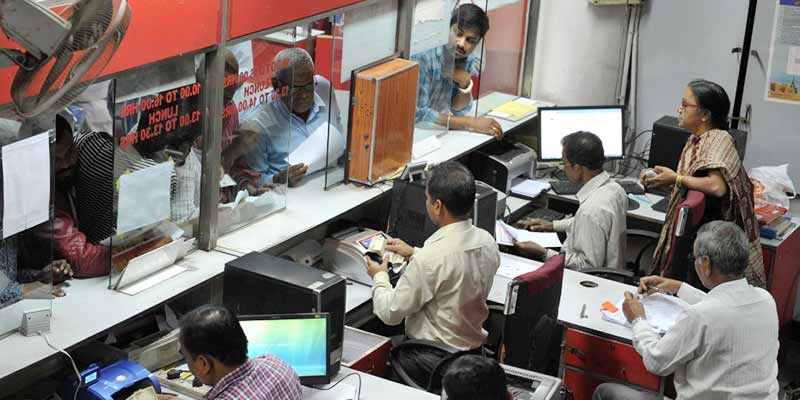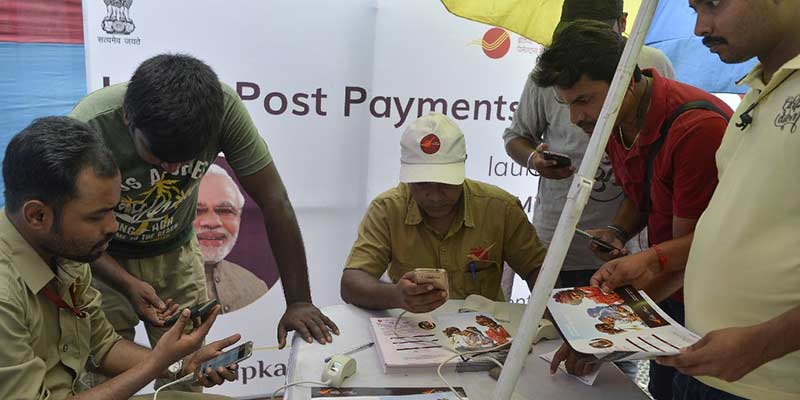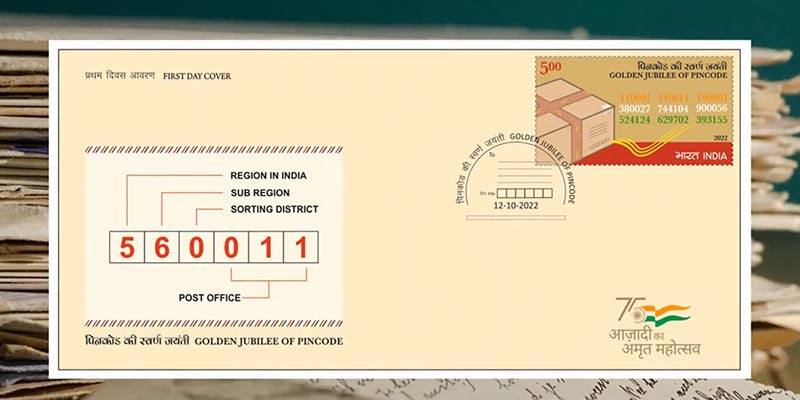- India
- Jun 22
Post Office Act, 2023 comes into effect
• The Post Office Act, 2023 came into force on June 18.
• The Post Office Bill was introduced in Rajya Sabha on August 10, 2023 and was passed in Rajya Sabha on December 4, 2023.
• The Bill was then passed by Lok Sabha on December 18, 2023.
• It received the assent of the President on December 24, 2023.
What is the purpose of the new Act?
• The Indian Post Office Act, 1898 was enacted 125 years ago with a view to govern the functioning of post offices in India. This Act primarily addresses mail services provided through the post office.
• Over the years, services available through the post offices have diversified beyond mails. The post office network has become a vehicle for delivery of a variety of citizen centric services.
• Post offices are practically functioning like banking services and there are 26 crore accounts with Rs 17 lakh crore deposited in post office savings services.
• About 3 crore accounts have been opened under the Sukanya Samriddhi Yojana with Rs 1.41 lakh crore deposited in them.
• As many as 3.5 crore people are beneficiaries of the direct benefits transfer scheme courtesy of the post office network.
• As many as 1.6 lakh post offices have been connected with core banking and digital banking facilities and 434 post offices have processed more than 1.25 crore passport applications and 13,500 Post Office Aadhaar Seva Kendras have been opened.
• The new Act addresses these changes and provides for a simple legislative framework to facilitate evolution of the post office into a network for delivery of citizen centric services.
• The Act aims to create a simple legislative framework for delivery of citizen centric services, banking services and benefits of government schemes.
• No penal provisions have been prescribed in the Act.
Key provisions of the Act:
i) The post office shall provide such services as the central government may by rules prescribe.
ii) The Director General of Postal Services shall make regulations in respect of activities necessary to provide those services and fix the charges for such services.
iii) The post office shall have the exclusive privilege of issuing postage stamps.
iv) The central government shall have power to give effect to the arrangements made with any foreign country or territory.
v) Every person shall be liable to pay charges for availing any service provided by the post office, and if such person refuses or neglects to pay any charge due to him it shall be recoverable as land revenue.
vi) The central government may prescribe the conditions for denoting the official mark on postal item to be used as prima facie evidence of the fact so denoted.
vii) The central government may, by notification, empower any officer to intercept, open or detain any item in the interest of the security of the State, friendly relations with foreign states, public order, emergency, or public safety or upon the occurrence of any contravention of any of the provisions of any law for the time being in force.
viii) The post office and officers of the post office shall be exempted from any liability by reason of any loss, mis-delivery, delay, or damage in course of any service provided by the post office except such liability as may be prescribed.
Concerns on interception provision
• One clause of the Bill drew significant opposition for threatening people’s privacy by allowing a government-appointed officer to intercept, open or detain any item for national security and allied reasons.
• According to the new legislation, the central government may, by notification, empower any officer to intercept, open or detain any item in the interest of the security of the State, friendly relations with foreign states, public order, emergency or public safety, or upon the occurrence of any contravention of any of the provisions of any law for the time being in force.
• Replying to a discussion on the Bill in the Upper House, Union Minister Ashwini Vaishnaw stressed the provision for interception is needed for national security reasons.
• In a society which is as complex and diverse, and times which are as difficult as they are, it is very important that interception is done. This kind of a provision is kept for national security, he said.
A brief history on India Post
• The Department of Posts, with its network of over 1.5 lakh post offices, is the largest postal network in the world.
• The origin of this vast postal network can be traced back to the year 1727, when the first post office was set up in Calcutta (Kolkata). Subsequently, General Post Offices (GPOs) were set up in the then three Presidencies towns of Calcutta in 1774, Madras in 1786, and Bombay in 1793.
• The Indian Post Office Act of 1837 was enacted to bring about uniformity in postal operations. This Act was followed by the more comprehensive Indian Post Office Act of 1854 which laid the foundation of modern-day postal system in the country.
• In the same year, Railway Mail Service was introduced and the Sea Mail Service started from India to Great Britain and China.
• The Indian Post Office Act of 1898 further strengthened the postal system in the country.
• On February 18, 1911, the world’s first airmail flight took off from Allahabad to Naini. It traversed a distance of 18 kilometers across the river Ganges.
• The first postage stamp valid across the country was issued on October 1, 1854 which provided an affordable and uniform rate of postage based on weight.
• Since then, the Department of Posts has continued to play an important role in the socio-economic development of the nation by connecting the remotest corners of the country.
• As per Article 246(1) of the Constitution of India, the Parliament has exclusive power to make laws with respect to any of the matters enumerated in List I (or the “Union List”) in the Seventh Schedule. Communication is listed as entry number 31 of List I of the Seventh Schedule of the Constitution of India. As such communication is a Union subject and Parliament has exclusive powers to make laws on the matters in respect of communications.
• The Department of Posts is part of the ministry of communications.
What is PIN Code?
• The PIN Code system was introduced in India by Shriram Bhikaji Velankar, who had served as an additional secretary in the Union ministry of communications.
• Its implementation began from August 15, 1972.
• Postal Index Number (PIN) or PIN Code is a six digit code of post office numbering used by India Post.
Why was the PIN Code introduced?
• There was confusion resulting from the duplication of names of various places across the country. Also, multiple languages were used to write addresses.
• The PIN code aims to simplify sorting of mails, speeding up mail transmission and delivery.
What does the PIN Code mean?
• There are nine PIN regions in the country. The first eight are geographical regions and the digit 9 is reserved for the Army Postal Service.
• The first digit indicates one of the regions. The first two digits together indicate the sub-region or one of the postal circles.
• The first three digits together indicate a sorting/revenue district.
• The last three digits refer to the delivery post office.
Manorama Yearbook app is now available on Google Play Store and iOS App Store



